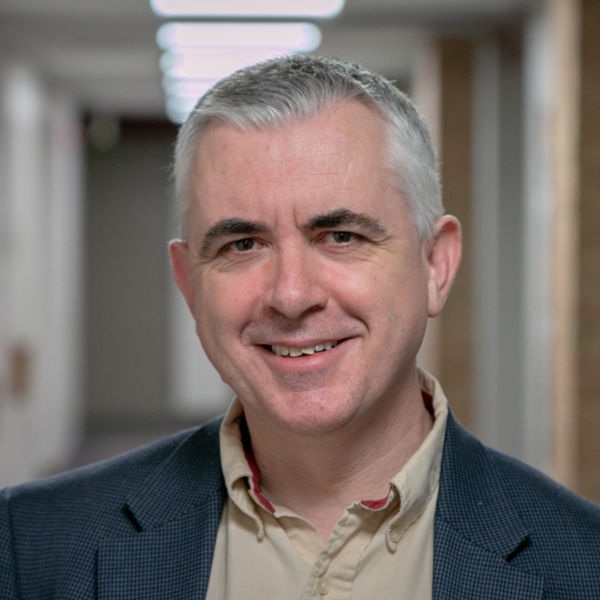Editor's note: A version of this article originally appeared as an Ahead of the Trend column on the Association of Religion Data Archives website.
Secular activists have said for centuries that the more people know, the less they will believe in religion. The Catholic hierarchy and Catholic schools continue to struggle over the university's role in balancing academic freedom and propagating the faith. The tension between overt hostility and treating religion as a valid subject of academic inquiry remains palpable at many public universities.
Yet the question remains: Does higher education lead to a loss of faith?
The answer, as indicated in a study published in the journal Sociology of Religion, may be as complex as the American religious landscape.
Mainline Protestants are more likely to view the Bible as a book of fables as they receive college diplomas, the study found. And the religiously unaffiliated, a growing percentage of the U.S. population, are far less likely than any of the other groups to pray or hold traditional beliefs as they acquire advanced degrees.
However, evangelicals, black Protestants and Catholics appear to become more religious the more steps they climb on the academic ladder, according to the study, which analyzed data from the 1972-2006 General Social Survey.
“Education does not uniformly decrease religiosity,” said researchers Michael McFarland of the University of Texas at Austin and Bradley Wright and David Weakliem of the University of Connecticut. “Once religious tradition is taken into account, a different picture emerges.”
Mixed grades
Several surveys on education and religion have found mixed results.
For example, in the 2006 Portraits of American Life Study, 58 percent of respondents with bachelor's degrees said religion or religious faith was very important to them personally. The percentage was just slightly below the 62 percent of high school graduates who attributed similar levels of importance to religion.
But there are greater variations on some questions of belief and practice: Seventy-one percent of high school graduates, compared to 58 percent of college graduates, told the 2007 Baylor Religion Survey that they have no doubt that God exists.
In their study, McFarland, Wright and Weakliem found that educational advances predicted increased attendance at religious services, decreased levels of prayer, increased inclination to view the Bible as a book of fables and decreased inclination to view the Bible as the literal word of God.
Within those findings, however, there were substantial differences related to religious traditions.
For instance, evangelical and black Protestants with secondary degrees were likely to pray more often than their fellow members with less education.
And all respondents with college educations were less likely to view the Bible as the literal word of God, but Catholics, evangelicals and black Protestants with increased education were more likely to view the Bible as being inspired by God. At the same time, mainline Protestants and unaffiliated respondents with higher degrees were more likely to view the Bible as a book of fables than as being inspired by God.
In short, the researchers reported: “Increased education for mainline Protestants and the nonaffiliated may have created a loss of belief, but for evangelicals, Catholics and black Protestants, it may have altered the nature of belief.”
Earthly rewards
The results may have burst some bubbles surrounding religion and higher education, but the researchers were not surprised.
They argued that evangelicals, black Protestants and Catholics would be more likely to find positive effects from higher education because their religious beliefs and tradition are a bigger part of their identity and would tend to buffer them from outside influences.
Their relatively higher incomes and potential to be bigger givers along with professional skill sets that can meet congregational needs may also make them more valued, particularly in churches with relatively fewer highly educated members.
“Individuals who are valuable to the congregation will likely become more involved in the religious community and become more religious over time,” the researchers said.
Mainline Protestants, in contrast, would be more likely to have negative influences on religion from higher education since they are more diverse in their beliefs and more accommodating toward modern life, the researchers said. At the same time, individuals with more education and higher incomes would tend to be less unique, and less highly valued, in mainline congregations.
Overall, however, “The main contribution of this study is that education does not uniformly decrease religiosity,” the researchers said.
They are not alone in challenging long-held assumptions that attending college necessarily undermines religious faith.
“In general, research in this area reveals that attending college does not, as was previously thought, inevitably lead to apostasy; in fact, recent work suggests that college may actually have the effect of preserving belief among some students,” Damon Mayrl and Freeden Oeur wrote in the June 2009 issue of the Journal for the Scientific Study of Religion, based on their analysis of social scientific studies on religion and higher education.
Scholars agree further study is needed to better determine the relation between religion and higher education.
But so far, the latest research indicates those who assume religion will slowly wind down as higher education rates increase are mistaken.
“Based on the data that is out there, something else has to be going on,” McFarland said. “There are a lot of highly educated people who are very devout.”












